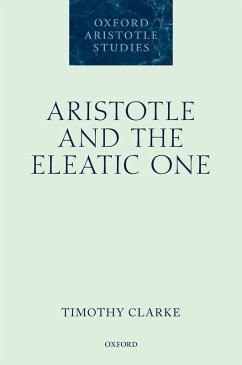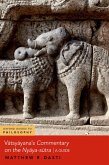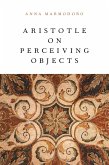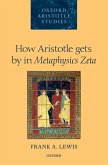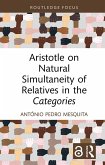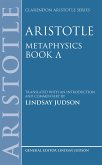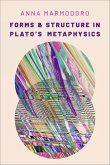In this book Timothy Clarke examines Aristotle's response to Eleatic monism, the theory of Parmenides of Elea and his followers that reality is 'one'. Clarke argues that Aristotle interprets the Eleatics as thoroughgoing monists, for whom the pluralistic, changing world of the senses is a mere illusion. Understood in this way, the Eleatic theory constitutes a radical challenge to the possibility of natural philosophy. Aristotle discusses the Eleatics in several works, including De Caelo, De Generatione et Corruptione, and the Metaphysics. But his most extensive treatment of their monism comes at the beginning of the Physics, where he criticizes them for overlooking the fact that 'being is said in many ways' - in other words, that there are many ways of being. Through a careful analysis of this and other criticisms, Clarke explains how Aristotle's engagement with the Eleatics prepares the ground for his own theory of the principles of nature. Aristotle is commonly thought to be an unreliable interpreter of his Presocratic predecessors; in contrast, this book argues that his critique can shed valuable light on the motivation of the Eleatic theory and its influence on the later philosophical tradition.
Dieser Download kann aus rechtlichen Gründen nur mit Rechnungsadresse in A, B, BG, CY, CZ, D, DK, EW, E, FIN, F, GR, HR, H, IRL, I, LT, L, LR, M, NL, PL, P, R, S, SLO, SK ausgeliefert werden.

